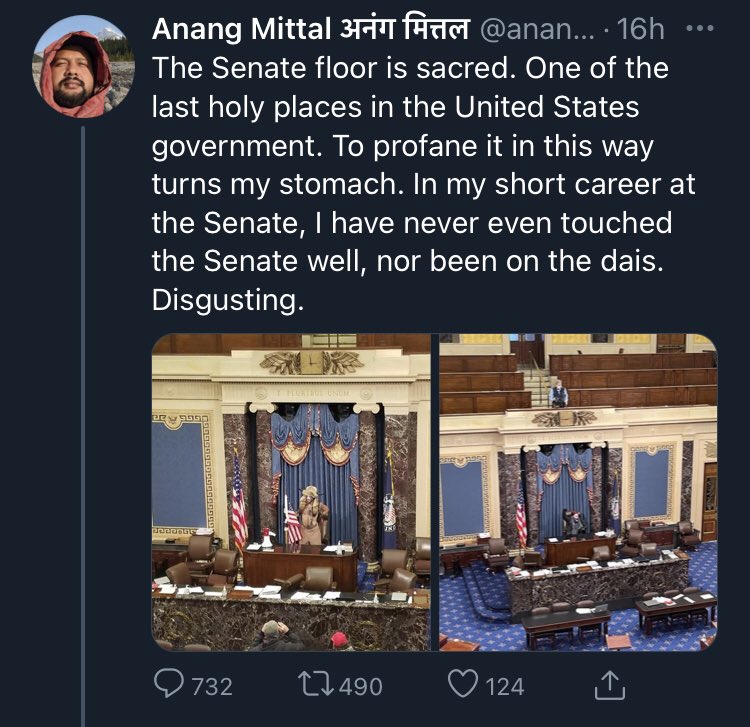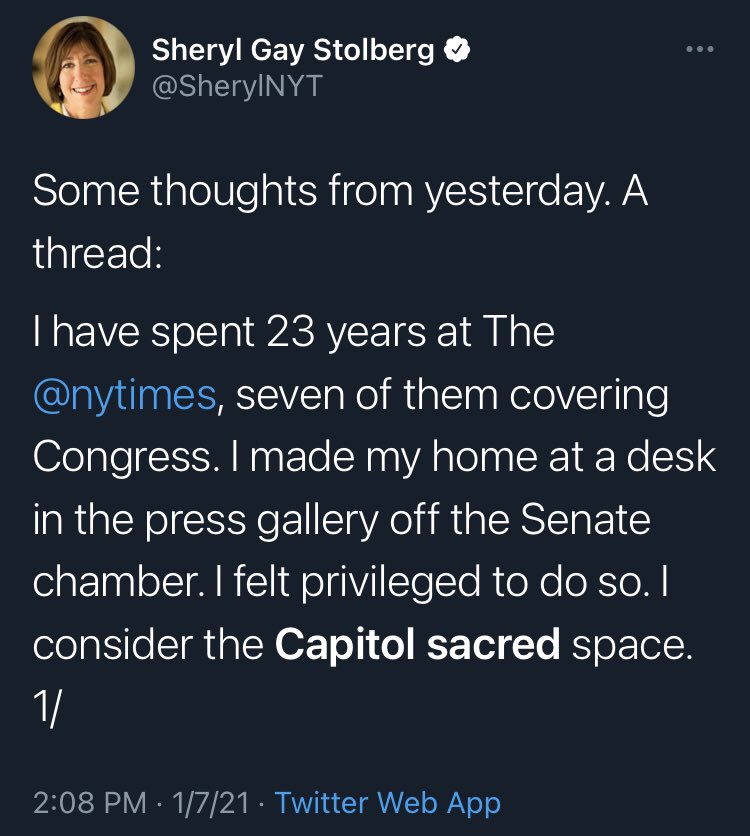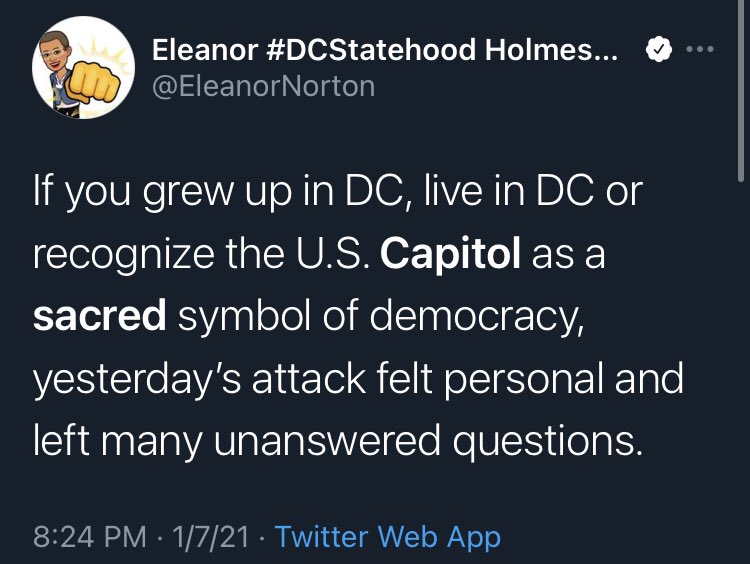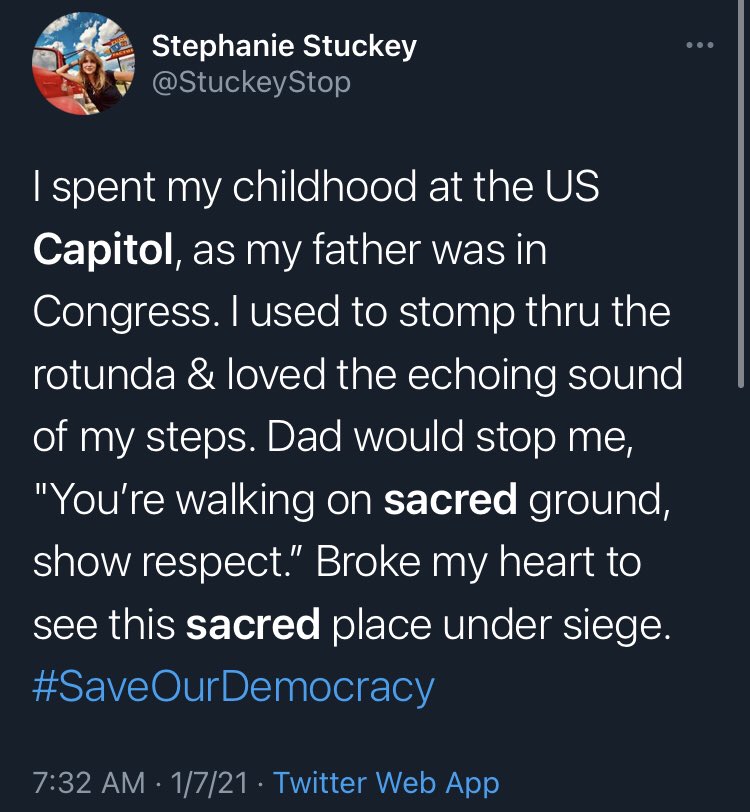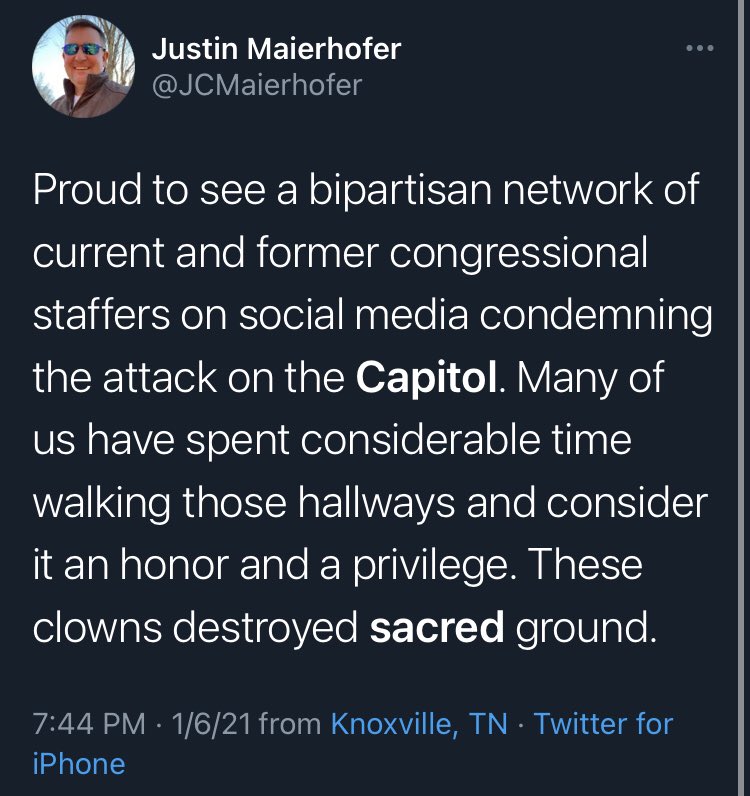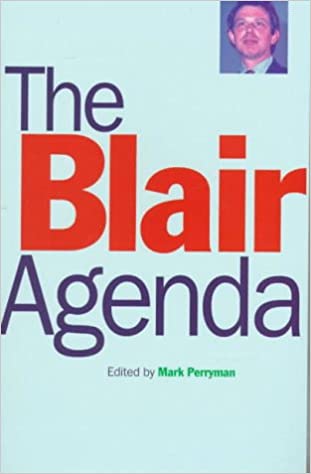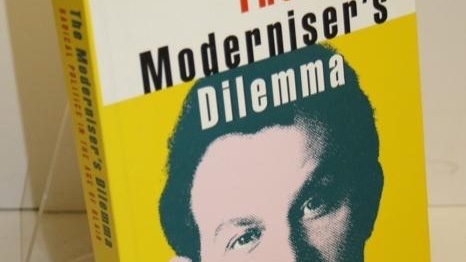CodyyyGardner Categories Government
One of the men photographed carrying zip-tie handcuffs on the Senate floor unmasked as a decorated Air Force veteran. My latest for @newyorker: https://t.co/6gt0wVAOTt
— Ronan Farrow (@RonanFarrow) January 9, 2021
2. First, an important distinction: The military can *recall* most retirees to active duty. But that's not the same thing as whether they can be tried by court-martial for offenses committed *while* retired (and before being recalled).
That's where things get complicated.
3. The Uniform Code of Military Justice (UCMJ) authorizes courts-martial for *any* offense committed by those who have retired from a "regular component" and are receiving pay, along with members of the Fleet Reserve and Fleet Marine Corps Reserve (who are effectively retirees).
4. But the UCMJ authorizes courts-martial for offenses committed by those who have retired from *reserve* components only while "receiving hospitalization from an armed force." And #SCOTUS held in 1955 that the military cannot try those who have *separated* from the armed forces.
5. So whether Brock can be tried by court-martial — under current law, anyway — for his role in Wednesday's attacks depends upon his *exact* status as of Wednesday, i.e., whether he is separated from the Air Force, retired from active duty, or retired from the reserves.
But...
Short cut to JCVI rationale behind extending interval between doses of #covidvaccine (thanks @mgtmccartney)
— Dr Mark Porter (@drmarkporter) January 1, 2021
Note efficacy is "calculated" rather than proven at this stage.https://t.co/EbZWcJYkFt
For the Ox/AZ vaccine, it's fairly simple. The trial demonstrated efficacy at a range of dose intervals. Antibody responses after the boost were significantly stronger with longer intervals - see table
(so in response to @drmarkporter's point, higher immune responses with a longer interval is proven & now public. I haven't seen a similar analysis for efficacy against disease but the data exists and I suspect the regulators & JCVI committee have)
For Pfizer, there isn't direct evidence of efficacy with a >3wk interval. But as widely publicised, efficacy in the period from 14 days after first dose to 21 days is high.
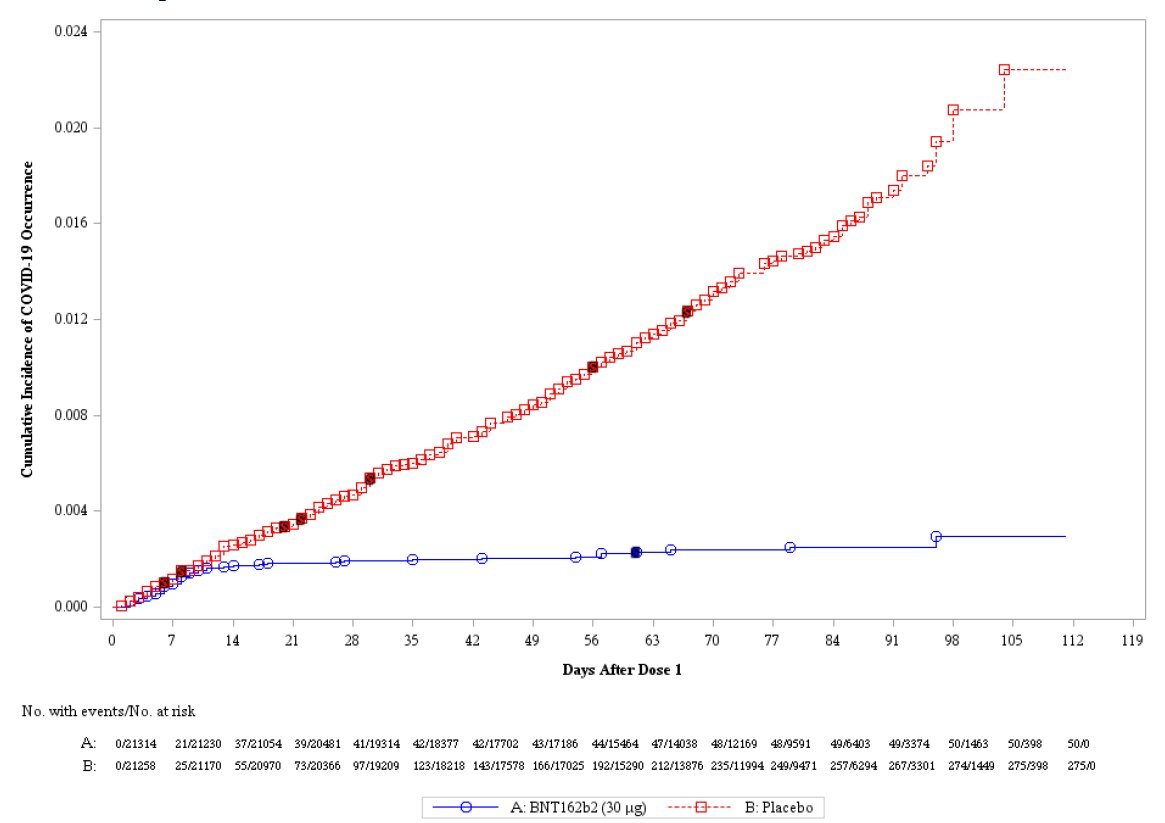
Can we extrapolate from this to a longer interval? It's a judgment call. On one hand is evidence-based medicine's scepticism of anything not directly proven 'beyond reasonable doubt' in an RCT; on the other is a 'balance of probabilities' approach based upon the biology.
They need to be thoughtful, not scared of doing so. 1/
(2 of 4) Commandant Sends #13: Protest at the US Capitol
— Army War College (@ArmyWarCollege) January 6, 2021
"And in light of that, I believe it is prudent to remind everyone of our duty to restrain ourselves from political commentary in any venue. The importance of an apolitical military cannot be overstated."
Yesterday, our nation's capital was attacked and the capitol was briefly occupied. 1100 members of the DC National Guard were activated, as were more than 6000 NG troops from half a dozen states.
They're now operating in a highly political environment. More could join them. 2/
Calls for our military to remain apolitical really mean: (1) our military must be non-partisan; (2) it should not interfere or influence elections; & (3) service members should not portray their personal opinions as the military institution's opinions. 3/
While there is a lot we don't know, there are indications that at least some police yesterday acted in a biased way -- allowing the mobs to bypass barriers to attack and enter the capitol building.
Personal/partisan sympathies cannot interfere with a military unit's duties. 4/
Leaders and commanders should talk to their formations about these issues, and try to understand if there are service members for whom that might be a problem. (Hint: there probably are.)
You can't do that if you're not communicating with them and having real discussions. 5/
The government isn't administering the vaccines, but they bankrolled the private pharmaceutical industry to study, create a vaccine, distribute and administer the vaccines.
as with every viral tweet, people are taking the wrong message, so let me clarify that this is not the pharmacist\u2019s fault. It\u2019s the fault of the people who planned or failed to plan for how this was going to work over the last nine months
— Christopher Hooks (@cd_hooks) December 31, 2020
$483 million in support available for Moderna's candidate vaccine.
$456 million in funds for Johnson & Johnson's candidate vaccine.
$1.2 billion in support for AstraZeneca's candidate vaccine.
$450 million in funds to support the large-scale manufacturing of Regeneron's COVID-19 investigational anti-viral antibody treatment, REGN-COV2.
A cornerstone of US labor law is the principle of "exclusive representation" - if you collect authorization cards from the employees and win an election, you...
1/
We're Alphabet workers. We\u2019ve been organizing for over a year, & we\u2019re finally ready to share why.
— Alphabet Workers Union (@AlphabetWorkers) January 4, 2021
This morning, we're announcing #AWU, the first union open to *all* workers at any Alphabet company.
Every worker deserves a union\u2014including tech workers.https://t.co/m2Qmjwz32V
...get to represent all the employees you sought to represent. As the exclusive rep, the employer has to work with that union and that union only on any issue of wages, hours, terms and conditions of employment. In turn, the union has a legal Duty of Fair Representation (DFR)
2/
... to not discriminate against the people it represents if they choose not to join the union.
The big problem: labor law is so weak in the US, employers violate it all the time with no consequences, and therefore obtaining exclusive rep status is really hard.
3/
However, a legal theory floated by law professor Charles Morris in his 2005 book, The Blue Eagle at Work, suggests that the law also allows unions WITHOUT exclusive representation.
3a/
The National Labor Relations Act, after all, in its vitally-important Section 7, says workers have the right to collectively bargain. It doesn't say that right only exists when there is an exclusive representative.
4/


